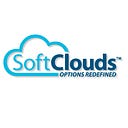Oracle Service Cloud — Knowledge Advanced : A Competitive Analysis
A solution for the modern customer
Recently our product focus has shifted to a relatively new solution in the marketplace called Oracle Service Cloud — Knowledge Advanced (KA). KA is a knowledge solution that is embedded in a CRM solution. A competitive analysis of KA’s features was done to see what it offered and how it compared to other similar solutions.
In choosing the solutions for the study, three criteria were applied:
- The solution had to be fully integrated with a CRM or Service Desk application.
- The solution had to be a true Knowledge Management System, NOT a Content or Document Management system.
- The solution should have been listed as a Leader in the 2016 Gartner Magic Quadrant for the CRM Customer Engagement Center.
The last criteria was chosen in an effort to focus the study on the solutions that were the top in class. Gartner is famous for its expertise across a wide range of IT areas and is frequently cited as an authority on IT solutions. The Magic Quadrant ranks the solutions based on their merits as CRM solutions, with Knowledge Management (KM) being just one of many critical factors. But since the study was to focus on KM solutions embedded in CRM solutions, the assumption was that a customer looking to acquire an all-in-one KM+CRM solution, would not only be looking to choose the best KM solution, but a best-in-class CRM solution as well.
Based on the three criteria mentioned above, the analysis was focused on the following solutions:
It is important to note here that though Zendesk was mentioned as a Leader in the Gartner study, it was excluded because it was reported by Gartner as receiving “low scores from reference customers for its… knowledge management…” Therefore, it wasn’t considered worthwhile to compare it to the other solutions.
Apart from the three criteria mentioned, it was noted that Salesforce and Oracle Service Cloud were the only two tools that the Consortium for Service Innovation listed as KM tools that combined KM and Incident Management, and were KCS (Knowledge-Centered Support) verified. This is a big deal for some support organizations, while others could care less. But as KCS is often cited as an authority on support in KM, it reinforced the decision to include these two solutions in the analysis.
Next, the features to include in the study were selected. Based on the countless conversations we’ve had with customers of KM solutions over the years, the top 50 features that customers want in a knowledge product were picked. They were then grouped into nine categories and evaluated across those categories. Based on whether the solution offered a feature, a score was calculated for the products in each category, and then aggregated for the final score.
The results were astounding. These are all well-known, enterprise class systems after all, and the differences were expected to be minimal. But there was only one clear winner, and that was KA.
Not only did KA offer the highest number of features, but the depth with which it covered these categories went far beyond the other solutions. This is evident from the number of first place wins in each feature category.
Furthermore, KA’s product roadmap is loaded with even more new features.
As far as available features go, there seems to be no question that KA is leagues above the rest. However, features will never be the only thing a buyer will look for when shopping for a new KM system. Some other factors that might influence buyer decision are:
- Specific functionality of features (do the advertised features actually offer the functionality expected)
- Budget
- Cloud or On-Premise
- Adding a customer portal (what kind of web application comes bundled with the KM solution)
- Integration with existing or future technologies
However since the features of a product will be the one criteria that all shoppers evaluate without exception, this study might benefit those who are seriously in the market for a new CRM+KM solution.
Have you shopped for a knowledge solution before? What was your choice and are you happy about it? Let us know in the comments below!
This post was written by Grace Kim — Customer Success Manager at SoftClouds. SoftClouds has extensive expertise in Knowledge Management (KM) and has done multiple implementations on KM. Our experience in designing and implementing KM Solutions can help your business find the best and most intelligent way to implement them using Oracle Knowledge or Oracle Service Cloud/Knowledge Advanced. SoftClouds can help you with the entire end-to-end process including designing, building, and deploying KM Solutions.
